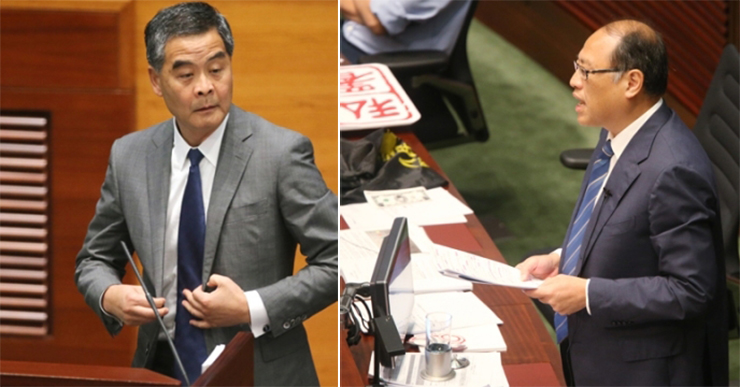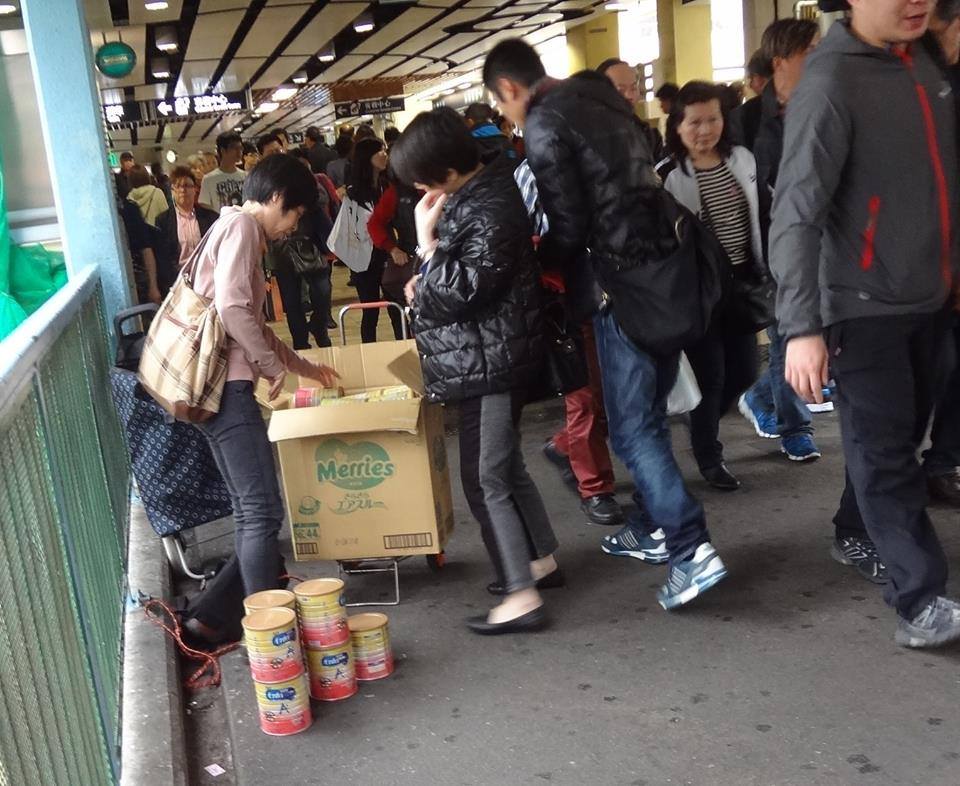Chief Executive Leung Chun-ying said lawmakers from the pro-Beijing camp can answer the question of whether they support him to run for a second term by simply explaining what the government did, and did not do, over the past four years, and let the voters decide.
Leung was responding to a question from lawmaker Lam Tai-fai at the final question and answer session before the Legislative Council’s current term ends on Friday.
Lam asked Leung how pro-Beijing lawmakers could answer such a question, as saying “yes” could mean losing votes in the LegCo election in September, and saying “no” could offend Beijing. Leung has yet to announce whether he will seek re-election.

Leung said he hoped LegCo election candidates belonging to both the pro-Beijing camp and the pan-democratic camp will be pragmatic.
“You can talk about the actual issues: housing, poverty, elderly care, environmental protection; these main policy points – what was done, and what was not achieved,” he said.
“If you think criticising or not supporting the government can win you more support from voters, what are you criticising us for?” he said.

Leung listed several policies passed during his tenure, such as the extra stamp duty on property sales, the ban on mainland people buying excessive amounts of milk formula or the ban on mainland women giving birth in private hospitals in the city.
“You can comment on my work practically and let voters decide whether to support me and support the government, and whether to vote for you,” he added.
But Lam said that Leung’s answer did not directly address the question of whether the pro-Beijing camp was “being left to fend for themselves.”
Leung also addressed the link between the LegCo election and his chances of getting a second term.
“One view is that the pro-Beijing camp losing seats in the election would be unfavourable for my re-election, another is that the loss would be very good for me,” he said. “I think both statements have their rationales.”
FTU lawmaker Kwok Wai-keung dropped CY’s election platform in 2012 on the floor during Q&A pic.twitter.com/78DFo1fdmV
— Kris Cheng (@krislc) July 14, 2016
Lam was not the only one in the pro-Beijing camp to raise a difficult question for Leung.
Federation of Trade Unions lawmaker Aron Kwok Wai-keung held up a copy of Leung’s election platform from 2012 as he asked Leung about his promise of standard working hours and cancelling the MPF offsetting arrangement. Both policies have yet to be passed.
“Do you really have the heart to help our workers with their issues?… Have you forgotten your election platform?” he said. Kwok then dropped the document on the floor.
Leung said in response that he was not afraid of the difficulties in handling these issues, and the government will try its best to seek consensus between society and the LegCo.
Kwok walked out of the chamber, saying that Leung was not answering the question and was wasting time. Some pan-democratic lawmakers cheered Kwok as he left.
Kwok was tipped to run in a direct election for the first time in September, switching from his role in the labour sector functional constituency.
